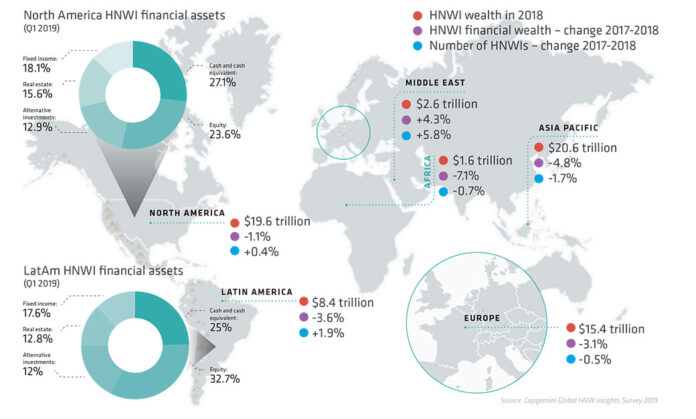Private banking can be called a comprehensive solution from public or private financial institutions that offer private management to high-end clients to take care of all their financial needs. Meanwhile, wealth management is a broader category that includes optimizing client portfolios.
There are many advantages that private banking clients can get related to bank services. For example, they do not need to queue to get services and complete transactions via telephone through the employees who handle them. All of these privileges are indeed part of the facilities that best nationwide banks provide to their priority clients.
Private Banking vs. Wealth Management: An Overview
Although it looks similar at first glance, there are some fundamental differences between private banking and wealth management. Viewed from several aspects, this is the difference between the two. The bank itself also continues to look for potential clients to be attracted to become its customers. The selection of new clients can be made by sending an invitation personally or through a capital loan made by a bank.
Private Banking
In general, private banking is a service provided by financial institutions (banks) to customers to manage their finances. But, of course, not all individuals can enjoy this private banking service. Each bank has a minimum amount of funds that customers must meet if they want to use private banking services.
Private banking is an exclusive service that is only for certain clients. However, these clients must meet the minimum required amount of cash or other assets to be deposited with the bank.
Perks of Private Banking

In private banking, clients will get advice related to investment and consider the financial condition of each client as a whole. Usually, private banking services help clients to protect and safeguard their sets. Private banking providers also help clients develop retirement plans and savings as well as distribute the inheritance to their descendants and other matters relating to clients’ finances.
Pursuing Private Banking Clients
Both private banking and wealth management manage the assets of their clients. However, the specifics of the services provided are different. Private banking provides banking services, asset management, trading (asset buying and selling, and simple tax consulting.
Meanwhile, wealth management offers services for asset allocation, asset structuring, tax planning, land ownership, pensions, charities, family disputes, business and family relocations). , and other matters relating to personal finance.
In private banking, clients do not have much choice because the bank only offers packages that they have made before. In this aspect, wealth management is superior because clients have many choices and can determine which one is the most appropriate for them. Sometimes for security reasons, wealth managers will use more than one bank or other financial institution.
Assets Under Management and HNWIs

Referring to the 2020 World Banks Report, the number of people who have significant assets (GDP per capita above US$ 135,000) or who are categorized as high net-worth individuals in each country reaches 4 million people or about 1.5% of the total population. Followed by about 20% or as many as 54 million are groups with middle income (GDP per capita above US$ 5,800). Meanwhile, 211 million, or 78%, are low-income groups.
Making a relationship with HNWIs is one of the most fundamental differences between private banking and wealth management. They both offer one-on-one discussions, but the services offered are different. Private banking provides banking packages that already exist for each client without further adjustment to the conditions of each client.
In contrast to wealth management, which emphasizes financial advisors and focuses on collecting, maintaining, conserving, and strengthening client assets. Each client will get different advice, depending on the financial condition and goals that each client wants to achieve. Throughout the use of the service, the wealth manager continues to monitor the client’s condition and make changes if necessary.
Wealth Management

At first glance, private banking and wealth management do look similar. Ordinary people often need clarification on the two concepts, even assuming that they are the same. However, private banking and wealth management have fundamental differences.
Wealth management usually includes discussion and execution of investments for the benefit of the client concerned. Firms that provide this service are sought after by people who want to invest with many options, from funding to stocks. The services provided by wealth management include assisting in financial planning (financial planning), managing client portfolios, and various other financial services related to clients’ personal financial choices.
What a Wealth Management Advisor Can and Cannot Do
Wealth management services are personally provided by large financial institutions, such as HSBC or Samuel Sekuritas. However, these services can also be provided by independent financial advisors or multi-licensed portfolio managers who offer a variety of financial services focused on high-end clients.
In wealth management, advisors and clients will discuss the objectives, level of comfort, risk, and other conditions that must be borne by clients when investing their assets. The financial advisor then develops an investment strategy that links all the information the client provides to help the client achieve their goals.
Unlike private banking, financial advisor near me cannot provide exclusive banking services to clients, nor can they help clients open bank accounts. But they can advise which bank account is best to choose. Personal financial advisors also have more discussions with their clients.
Investment Strategy

Wealth management can benefit from the flexibility and reactivity to act solely for the client’s benefit. Because clients can make their own decisions, the wealth manager’s workload is not too heavy. In contrast to private banking, the process is slower and less transparent than wealth management.
Cost Effectiveness
Using wealth management services is undoubtedly more cost-effective. The services wealth managers provide include banking, insurance, investment, asset management, and so on, without special binding requirements. Meanwhile, the services provided by private banking are relatively limited.
The most fundamental difference between private banking and wealth management is the variety of services provided and the freedom of consumers to choose. Even though wealth management has many advantages, it cannot provide exclusive banking services even though clients have large amounts of funds.




